Looking for Expert-Level VA Claim Answers?📱Call Us Now! 737-295-2226
I’m going to begin this article with the Bottom Line Up Front (BLUF):
It is DIFFICULT to get service connected for Sleep Apnea secondary to PTSD.
Why?
Because the medical research is slim to none on the actual “connection,” if any, between Sleep Apnea and PTSD.
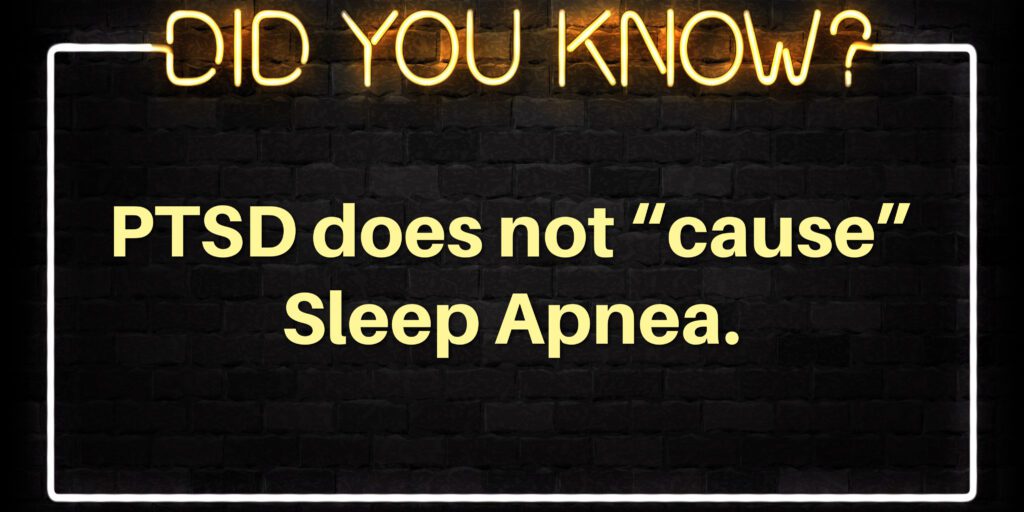
For example, much of the medical research to-date involves small-scale studies (small sample sizes) with limited conclusions regarding the relationship between Sleep Apnea and PTSD.
One thing we do know for sure: PTSD does not “cause” Sleep Apnea.
However, there might be a path to service connection using a VA secondary claim and principles of “aggravation.”
You’ll also learn about critical medical evidence requirements.
Okay, let’s begin.
You Might Also Like the Following Blog Posts:
- Top 5 VA Secondary Conditions to PTSD
- 40+ Sleep Apnea Secondary Conditions Revealed
- Top 100 VA Disability List of Secondary Conditions
- Top 50 VA Disability Claims Explained
- How to Establish Service Connection for VA Sleep Apnea Secondary to PTSD
- How to Get a Nexus Letter for Sleep Apnea Secondary to PTSD
- Can I Service Connect Sleep Apnea Secondary to PTSD?
- What is the VA Rating for Sleep Apnea Secondary to PTSD?
- Can Sleep Apnea Be Service Connected Secondary to Other Mental Health Conditions?
- Sample Nexus Letter for Sleep Apnea Secondary to PTSD
- Do I Need a Nexus Letter for Sleep Apnea Secondary to PTSD?
- About the Author
How to Establish Service Connection for VA Sleep Apnea Secondary to PTSD

In accordance with 38 CFR § 3.310 disabilities that are “proximately due to,” or “aggravated by,” or the “result of” a service-connected disease or injury shall be service connected.
When service connection is thus established for a secondary condition, the secondary condition shall be considered a part of the original condition.
Service connection on a secondary basis requires a showing of causation.
A showing of causation requires that the secondary disability claim be shown to be “proximately due to” or “aggravated by” another service-connected disability.
There are three evidentiary elements that must be satisfied for secondary conditions to PTSD to prove service connection under the law:
- A medical diagnosis of the secondary disability condition you’re attempting to link to PTSD (in this case, you need a medical diagnosis of Sleep Apnea confirmed by a sleep study) AND
- A current service-connected primary disability (e.g., your current VA rating for PTSD) AND
- Medical nexus evidence establishing a connection between the service-connected PTSD and Sleep Apnea
The FIRST part can be satisfied with any existing medical evidence in service treatment records, VA medical records, or any private medical records.
The SECOND part can be satisfied with a veteran’s existing service-connected disability rated at 0 percent or higher, which in this case, is PTSD.
The THIRD part, and often the missing link needed to establish secondary service connection, can be satisfied with a credible Medical Nexus Letter (Independent Medical Opinion) from a qualified medical provider.
MUST READ: Do I Need a Nexus Letter?
How to Get a Nexus Letter for Sleep Apnea Secondary to PTSD
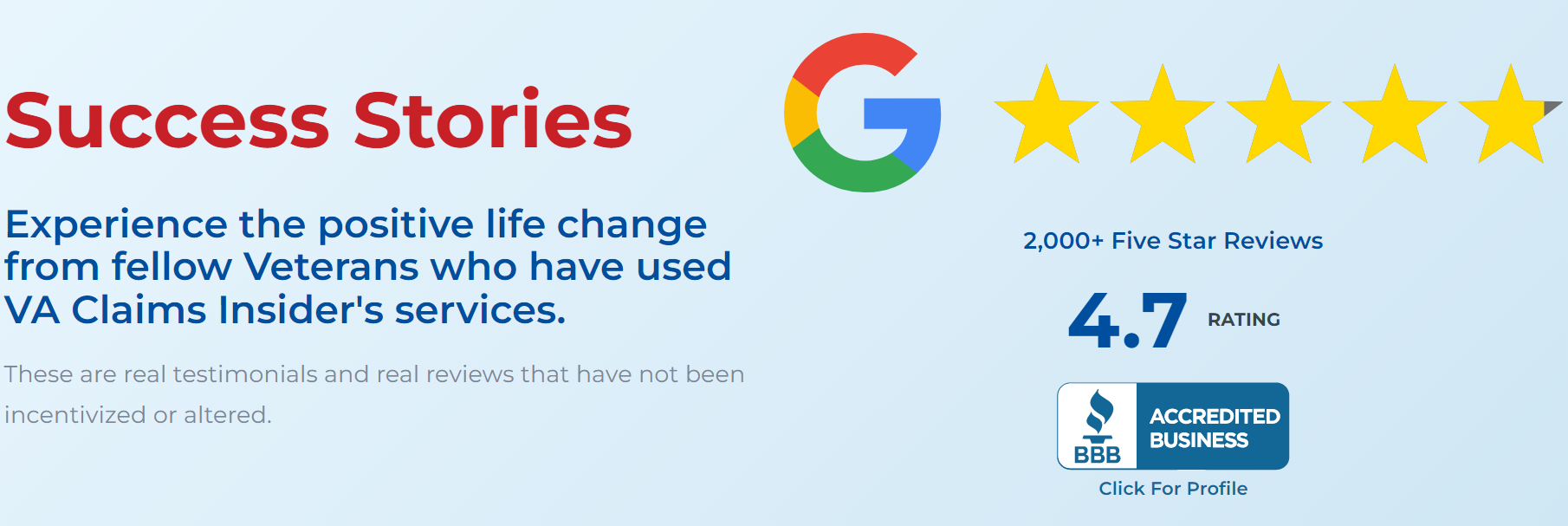
Did you know you could be missing out on thousands of dollars of tax-free disability benefits you deserve by law, and not even realize that your Sleep Apnea might be “caused” or “aggravated” by your service-connected PTSD?
Need an Independent Medical Opinion (Nexus Letter) to help establish secondary service connection for Sleep Apnea secondary to PTSD?
Click HERE Now to Join VA Claims Insider Elite, our premier education-based membership program, which also gets you discounted access to independent medical providers in our referral network for medical examinations, VA disability evaluations, and Medical Nexus Letters for a wide range of conditions!
Can I Service Connect Sleep Apnea Secondary to PTSD?
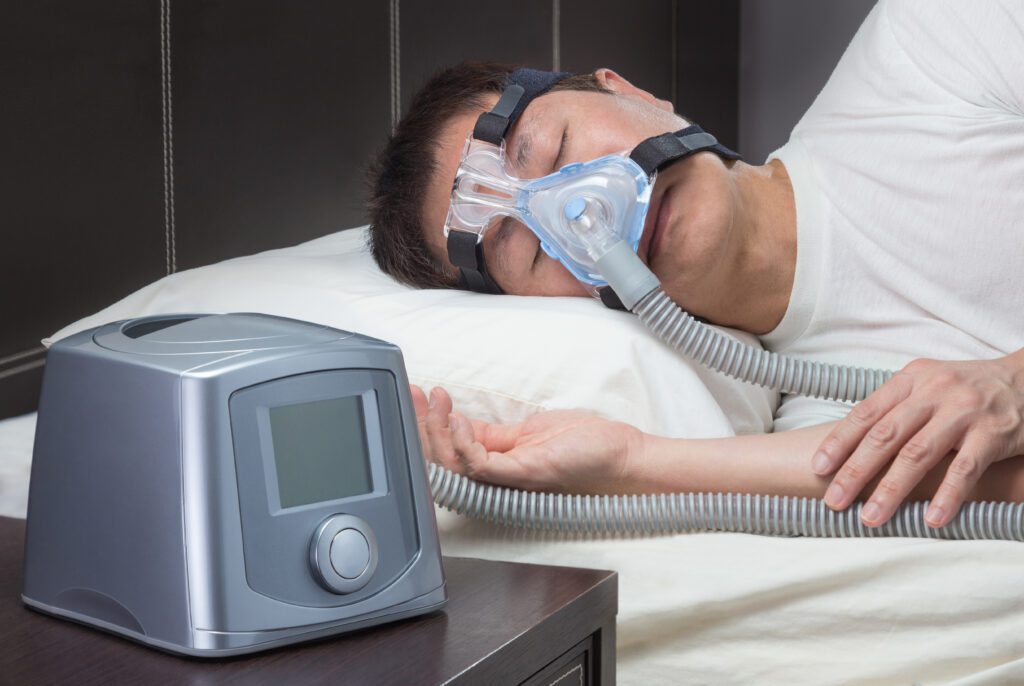
Yes, you can get service connected for Sleep Apnea secondary to PTSD.
But the way you make it happen is a bit unconventional and requires you to think outside the box.
PTSD does not “cause” Sleep Apnea.
However, Sleep Apnea can be “aggravated” by PTSD, specifically, with weight gain and obesity as an “interim link” for service connection.
Pro Tip #1: Brian Reese from VA Claims Insider recommends you get a Nexus Letter with high probative value from a private provider to make your argument stronger.
Pro Tip #2: In addition, you should get a DBQ for Sleep Apnea from a private provider and submit it with your Fully Developed Claim (FDC).
This strategy potentially removes a C&P exam from the equation, and allows a VA Rater to make a rating decision based on the submitted evidence alone.
What is the VA Rating for Sleep Apnea Secondary to PTSD?
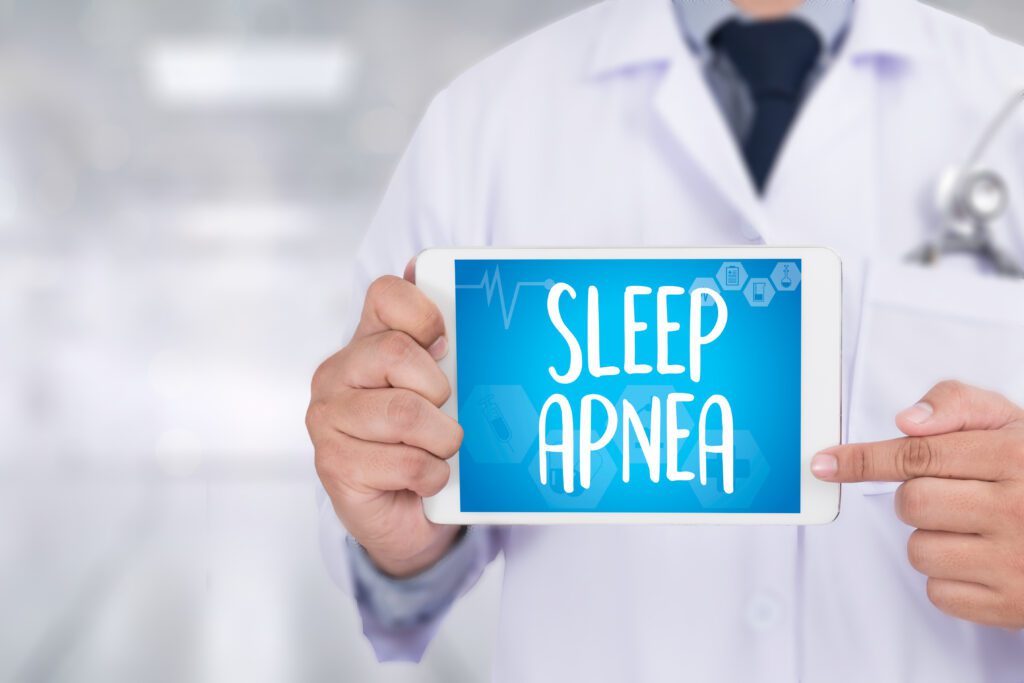
Sleep Apnea secondary to PTSD is rated under diagnostic code 6847, Sleep Apnea Syndromes (Obstructive, Central, Mixed):
VA disability ratings for Sleep Apnea secondary to PTSD range from 0 percent to 100 percent with breaks at 30 percent and 50 percent.
- A 0% VA rating for Sleep Apnea is warranted if you’re asymptomatic (no symptoms), but with a documented sleep disorder.
- A 30% VA disability rating for Sleep Apnea is warranted if you have persistent daytime hypersomnolence, but do not require the use of a breathing device.
- A 50% VA rating for Sleep Apnea secondary to PTSD is warranted if you require the use of breathing assistance device such as a Continuous Positive Airway Pressure (CPAP) or Bi-level Positive Airway Pressure (BiPAP)
- A 100% VA rating for Sleep Apnea is warranted for chronic respiratory failure with carbon dioxide retention or cor pulmonale or requires tracheostomy.
| VA Rating Scale for Sleep Apnea Secondary to PTSD | VA Rating |
| Chronic respiratory failure with carbon dioxide retention or cor pulmonale, or requires tracheostomy | 100% |
| Requires use of breathing assistance device such as a CPAP machine | 50% |
| Persistent daytime hypersomnolence | 30% |
| Asymptomatic but with documented sleep disorder breathing | 0% |
Can Sleep Apnea Be Service Connected Secondary to Other Mental Health Conditions?

Yes, Sleep Apnea can be service connected secondary to any ratable Mental Health condition, but usually only with “weight gain and/or obesity as an intermediate step.”
Thus, if the veteran is not overweight or obese, this option won’t work.
Obesity as an intermediate step for secondary service connection is only reasonably raised when there is evidence in the record that draws an association or suggests a relationship between the veteran’s current obesity or weight gain resulting in obesity, and service connected disability.
Incidental references to a veteran’s weight or weight gain are not sufficient to reasonably raise the issue.
Obesity per se is not a “disability” for the purposes of service connection under 38 CFR 3.310 for secondary service connection.
However, obesity may be an “intermediate step” between a service connected disability (e.g., PTSD) and a current disability (e.g., Sleep Apnea) that may be service connected on a secondary basis under 38 CFR 3.310(a) or on the basis of aggravation under 38 CFR 3.310(b).
To determine whether obesity is an intermediate step between a service connected disability and the development of a current disability that may be service connected on a secondary basis, including by aggravation, the following criteria must all be satisfied:
- The service connected disability (e.g., PTSD) must have caused the veteran to become obese
- The obesity, as a result of the service connected disability, must have been a substantial factor in causing the claimed disability, OR
- Aggravating the claimed disability, AND
- The claimed disability would not have occurred but for the obesity caused or aggravated by the service connected disability.
Sample Nexus Letter for Sleep Apnea Secondary to PTSD
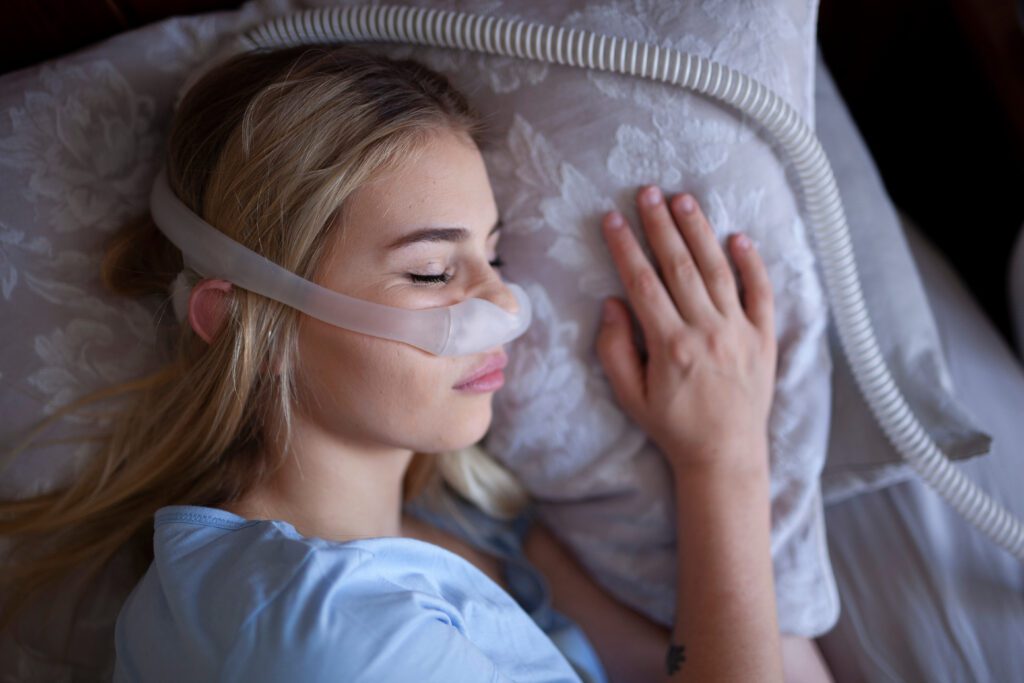
Okay, let’s recap in simple terms:
A Nexus Letter for Sleep Apnea secondary will be needed to connect the veteran’s weight gain and obesity to their service connected disability, such as PTSD, Depression, Anxiety.
The Nexus Letter must clearly explain three elements:
- Why/How the service connected mental health disability caused the veteran to become overweight and/or obese.
- Why/How the weight gain and/or obesity, as a result of the service connected mental health disability, was a substantial factor in causing the Sleep Apnea, typically Obstructive Sleep Apnea.
- Why/How Sleep Apnea would not have occurred if not for the weight gain and/or obesity caused by the current service connected mental health disability.
We have seen a handful of these types of claims approved, however, they are rare to win on your first claim, and usually are only approved via a Higher Level Review, Supplemental Claim, or BVA decision.
Pro Tip #3: In our experience helping over 15,000 veterans since 2016, we recommend attempting to connect Sleep Apnea secondary to a respiratory condition, such as Sinusitis, Rhinitis, or Asthma.
Do I Need a Nexus Letter for Sleep Apnea Secondary to PTSD?
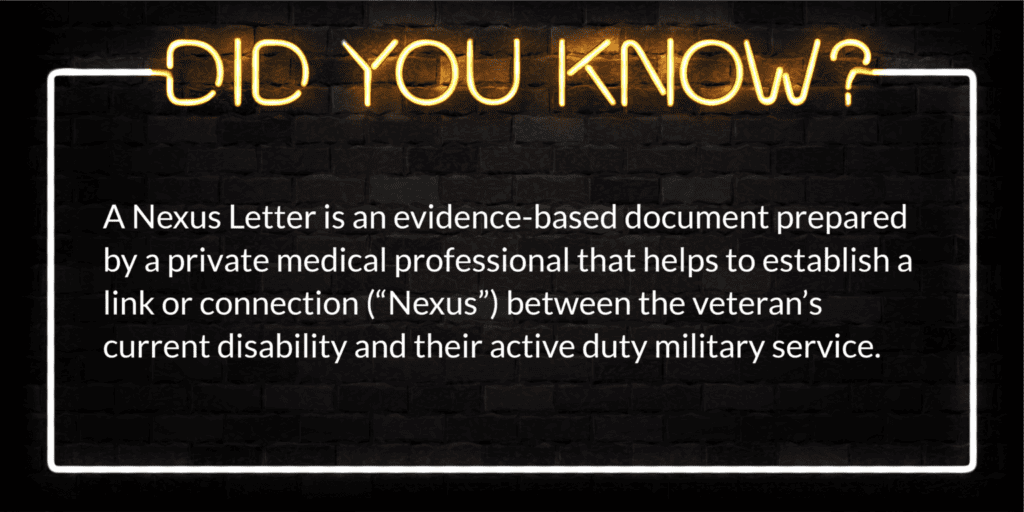
Yes, you should get a Nexus Letter to help service connect Sleep Apnea secondary to PTSD.
Veterans who become members of the VA Claims Insider Elite program get access to a network of independent medical providers who can write a Nexus Letter for Sleep Apnea Secondary to PTSD, usually with weight gain and/or obesity as an “interim link” for service connection.
Our advice is to be weary of private providers charging $2,000 or more for a Nexus Letter for Sleep Apnea secondary to PTSD—especially those who suggest the two conditions are medically connected—they aren’t.
About the Author

Brian Reese
Brian Reese is a world-renowned VA disability benefits expert and the #1 bestselling author of VA Claim Secrets and You Deserve It. Motivated by his own frustration with the VA claim process, Brian founded VA Claims Insider to help disabled veterans secure their VA disability compensation faster, regardless of their past struggles with the VA. Since 2013, he has positively impacted the lives of over 10 million military, veterans, and their families.
A former active-duty Air Force officer, Brian has extensive experience leading diverse teams in challenging international environments, including a combat tour in Afghanistan in 2011 supporting Operation ENDURING FREEDOM.
Brian is a Distinguished Graduate of Management from the United States Air Force Academy and earned his MBA from Oklahoma State University’s Spears School of Business, where he was a National Honor Scholar, ranking in the top 1% of his class.



